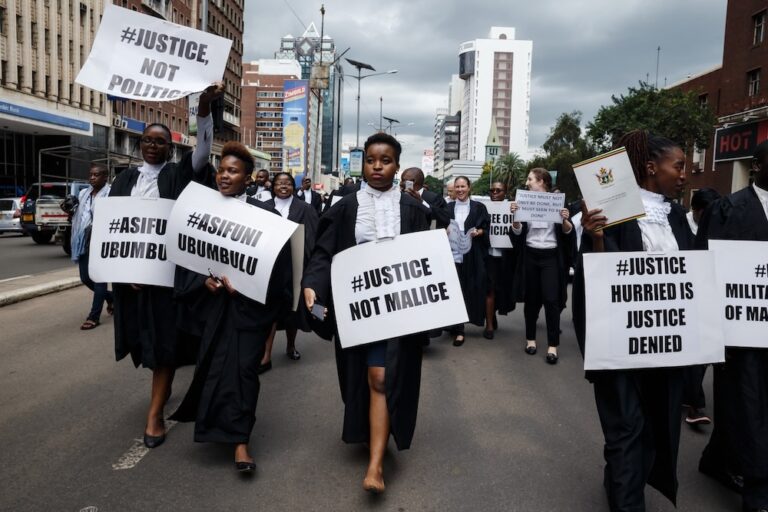(MISA/IFEX) – Zimbabwean President Robert Mugabe has signed into law the Access to Information and Protection of Privacy Amendment Act (AIPPA Amendment), which seeks to correct certain anomalies that came to light after the law was promulgated in 2002. On 13 October 2003, “The Herald” newspaper reported that in an extraordinary government gazette, Chief Secretary […]
(MISA/IFEX) – Zimbabwean President Robert Mugabe has signed into law the Access to Information and Protection of Privacy Amendment Act (AIPPA Amendment), which seeks to correct certain anomalies that came to light after the law was promulgated in 2002.
On 13 October 2003, “The Herald” newspaper reported that in an extraordinary government gazette, Chief Secretary to the President and Cabinet Misheck Sibanda said the president had signed the act into law.
The new act redefines Section 2 of the principal act. The term “mass media service” or “mass media”, which hitherto had been unclear, has been defined as “any service, media or medium consisting in the transmission of voice, visual, data or textual messages to an unlimited number of people and includes an advertising agency, publisher or, except otherwise excluded or specially provided for in this Act, a news agency or broadcasting licensee as defined in the Broadcasting Services Act”.
“Mass media products” are now defined as “an advertisement, the total print or part of the total print of a separate issue of a periodically printed publication, a separate issue of a tele text programme, the total or part of the data of any electronically transmitted material or audio or video recorded programme”.
“Mass media” now means “any service that produces mass media products whether or not it disseminates them”.
The amendments also include the insertion of a new section on the abuse of journalistic privilege. In May, the Supreme Court struck down Section 80 of the act, which had made it an offence for a journalist to “publish falsehoods”. The court deemed the section to be unconstitutional.
The new amendment states that “a journalist who abuses his or her journalistic privilege by publishing information that he or she intentionally or recklessly falsifies in a manner which threatens the interests of defense, public safety, public order, the economic interests of the state, public morality or health or is injurious to the reputation, rights and freedoms of other people, shall be guilty of an offence and liable to a fine or imprisonment not exceeding two years”.
Section 22 has been amended and now states that “the head of a public institution may refuse to disclose to an applicant information concerning the applicant if such disclosure will result in a threat to the applicant’s or another person’s safety or physical health”.
The new act exempts the following from registration: “a mass media service founded by or under an Act of Parliament, a mass media service consisting of the activities of a person holding a license issued in terms of the Broadcasting Services Act, a representative office of a foreign mass media service permitted to work in Zimbabwe and the production of publications by any enterprise, institution and other person that are disseminated to exclusively to members or employees of that enterprise, association, institution or other person”.


